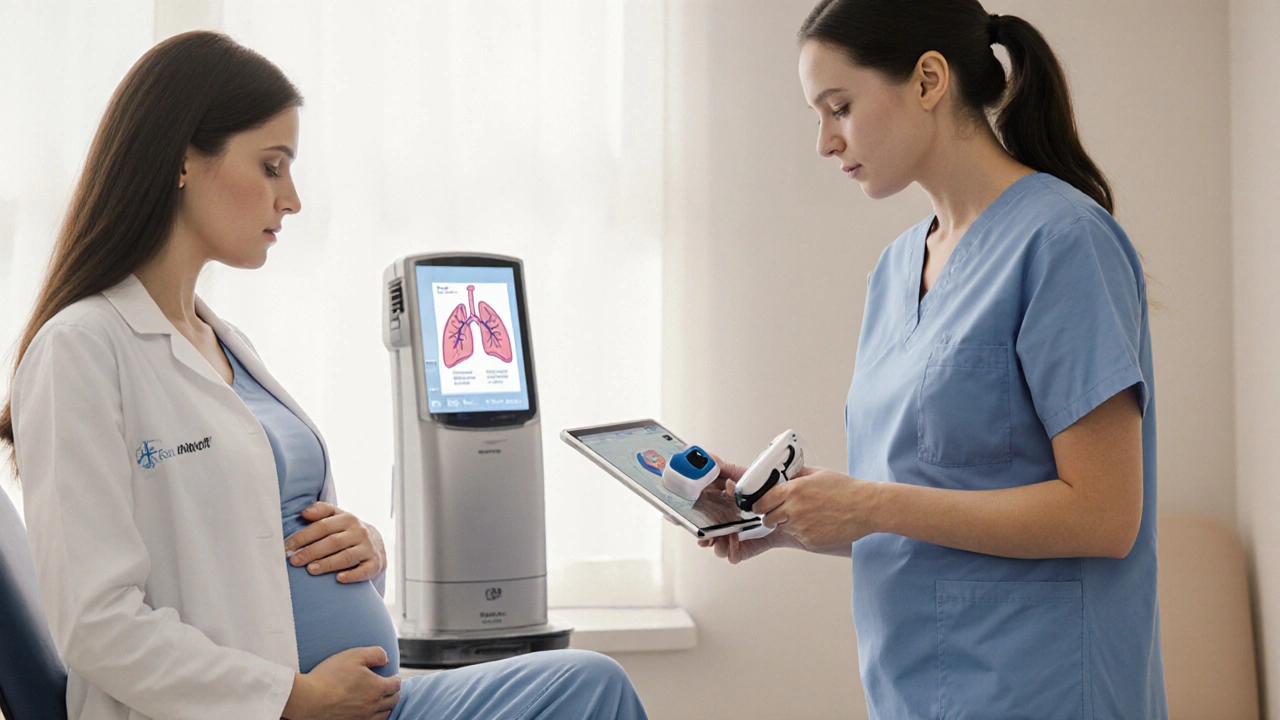Pregnancy with Lung Disease: What You Need to Know
When you have a lung disease, a chronic condition that affects breathing, such as asthma, COPD, or pulmonary hypertension. Also known as respiratory disease, it doesn't mean you can't have a healthy pregnancy—but it does mean you need to plan ahead. Many women with lung disease go on to have safe, successful pregnancies, but the changes your body goes through during pregnancy can make breathing harder. Your lungs work harder to supply oxygen to your growing baby, and if your lungs are already struggling, that extra demand can lead to complications like low oxygen levels, preterm labor, or preeclampsia.
Asthma, a common lung condition where airways become inflamed and narrow. Also known as reactive airway disease, it’s the most frequent chronic condition seen in pregnant women. If your asthma is well-controlled before pregnancy, your risk of problems drops significantly. But if you stop your inhalers out of fear, you’re putting yourself and your baby at greater risk than if you kept using them. Most asthma medications, including inhaled corticosteroids and albuterol, are considered safe during pregnancy. On the other hand, COPD, a group of lung diseases including emphysema and chronic bronchitis that block airflow. Also known as chronic obstructive pulmonary disease, it’s less common in younger women but can still occur, especially in those with a smoking history. Pregnancy with COPD requires close monitoring because your body’s oxygen needs rise while your lung capacity shrinks. Then there’s pulmonary hypertension, high blood pressure in the arteries of the lungs. Also known as PH, it’s one of the riskiest lung conditions to carry a pregnancy with—many doctors advise against it unless the condition is very mild and closely managed.
What’s missing from most discussions is how much your treatment plan needs to change. You might need more frequent lung function tests, oxygen monitoring, or adjustments to your meds. You might also need to avoid certain triggers—smoke, allergens, infections—that you could handle before pregnancy but now could trigger a flare-up. The good news? Many of the same tools you use to manage your lung disease every day—breathing exercises, avoiding triggers, staying active—are even more important now. And yes, you can still get the flu shot, the whooping cough shot, and even the COVID vaccine—all recommended during pregnancy, even with lung disease.
The posts below cover real-world cases and medication comparisons that matter when you’re managing a lung condition while pregnant. You’ll find guides on safe asthma inhalers, how certain antibiotics affect lung health in pregnancy, what happens when you take blood thinners with respiratory issues, and how to tell if your symptoms are normal pregnancy changes or a sign your lung disease is worsening. This isn’t theoretical advice—it’s what women and doctors actually use to make decisions day to day.
Emphysema and Pregnancy: Key Facts & Safe Pregnancy Tips
Essential guide on managing emphysema during pregnancy, covering risks, medication safety, oxygen therapy, lifestyle tips, and birth planning.
